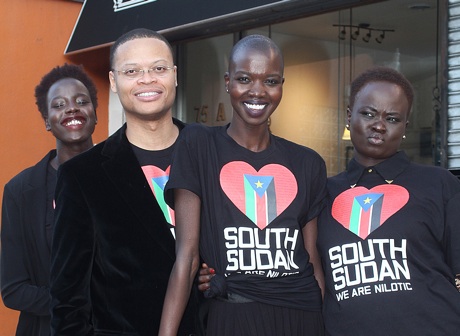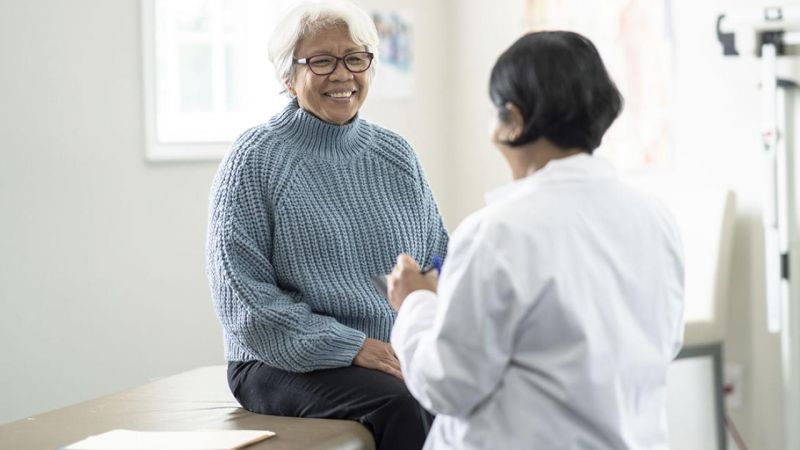Left to right: Nyabuoy Gatbel, Kent Forte, Proprietor Harlem Wine Gallery, Nykhor Paul founder “We Are Nilotic” and Nuerqueen Chaany. Photo: Hakim Mutlaq
Sudanese women from different parts of the US and Canada gathered in New York City to promote the “We are Nilotic” project which is intended to highlight the deplorable conditions under which the people of Southern Sudan are currently living and to promote peaceful conflict resolution.
The project, spearheaded by International Sudanese model Nykhor Paul, was sponsored by the Netherlands and also received some support from the United Nations as they spent the last week in the City meeting various officials and organizations in an effort to create more support.
Their Harlem event was supported by and held at the Harlem Wine Gallery.
Spearheaded by Sudanese women, “We are Nilotic” is an initiative principally founded to advocate for the long-deferred peace in South Sudan. It serves as a platform for South Sudanese women and youth to assert their often-neglected voices in the peacemaking process.
The group deplored ethnic divisions that’s fueling the current crisis. It wants to “promote the oneness and indivisibility” of their transcendent identity as South Sudanese.
“We believe that in order for the painstaking work of forging a collective national identity and Nation building to commence, all forms of ethnic, religious, regional, divisions must strongly be renounced and condemned,” the group says, in a statement. “Our society must fervently work to cultivate a populace whose conscious orientation is national in scope. We advocate for the erection of common monuments around which we all can coalesce as South Sudanese and denounce those that contemptuously relegate us to mere tribes.”
“The Nile, our common sustenance since time immemorial, stands as a fitting symbol for our union, hence ‘Nilotic’. We advocate for the establishment and reinforcement of communal linkages through projects that specifically combat the evident segregation in order to allow for the nurturing and flourishing of cordial relations between the estranged communities,” the group says.
“We are Nilotic” also envisions a countrywide National Reconciliation program that can set us on a course towards true healing.
The enmity among some ethnic groups can only be purged through an initiative that embarks on an honest and civil discourse that passionately promotes justice and places an even greater emphasis on forgiveness, the group maintains.
Violence must strongly be rejected. And accordingly, “We are Nilotic” advocates for a grassroots education that sensitizes citizens to the historically entrenched social and economic factors that make the outbreak of deadly violence possible.
“We are a society wounded by a series of traumatic events and it is critical that the consequences of this reality are addressed, for this in fact could mean the difference between peace and further bloodshed,” says the group.
Development and service delivery can also go a long way in deterring future ethnic violence. With a measure of improved living standards, inter-communal aggression will proportionately decrease. With opportunities available, the youth will not be so easily enticed into prosecuting wars for opportunistic politicians.







